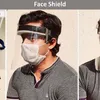Robots help combat COVID-19 in other countries and may soon be deployed in India
In India, Sawai Man Singh Government Hospital in Rajasthan's capital Jaipur is conducting a series of trials on a humanoid robot to check if it can be pressed into service for delivering medicines and food to COVID-19 patients admitted there.
Stepping in where humans should not, robots are being used for jobs such as sanitising hospitals and delivering food and medicines in many parts of the world, and also perhaps soon in India where experiments are underway to increase their role in combating COVID-19 outbreak.
As health workers, researchers and governments struggle to contain the spread of the pandemic that has infected more than 7,00,000 people globally and claimed more than 30,000 lives, robots are also being deployed for administering treatment and providing support to quarantined patients.
The World Health Organisation has advised physical distancing for people around the world to prevent community level transmission of COVID-19.

Supplying essentials to homes and delivering treatment in high-risk areas such as hospitals has remained a challenge, and humans in many cases are now delegating tasks to machines.
Earlier this month, a field hospital staffed with 14 robots opened in the Hongshan Sports Center in Wuhan, China, where the pandemic began.
The robots, supplied by Beijing-based robotics company CloudMinds, can clean and disinfect, deliver medicine to patients and measure their temperature.
In India, the Sawai Man Singh Government Hospital in the Rajasthan capital Jaipur is conducting a series of trials on a humanoid robot to check if it can be pressed into service for delivering medicines, and food to the COVID-19 patients admitted there.
This could potentially reduce the chances of the hospital staff contracting the infection, hospital officials said.
Besides, Kerala-based startup Asimov Robotics has developed a three-wheeled robot that it says can be used to assist patients in isolation wards.
This will include helping with things like food and medication, something that nurses and doctors have been doing so far, putting them at larger risk of contracting the virus.
The idea of robots taking up jobs previously done by humans may feel dystopian but scientists believe machines can free up human hospital medical staff while limiting the spread of the virus.
Robots can play a vital role during the present pandemic as they can minimise human intervention at all levels, starting from patient examination to patient care and drug delivery mechanism, Lovi Raj Gupta, executive dean of Science and Technology in Punjab's Lovely Professional University (LPU), told PTI.
As the present pandemic's prevention and cure are centred around distancing, robots are to be brought in so that least human interaction is practised, especially with people who have been found positive and are kept in isolation, Gupta said.
India has reported 1,071 cases, including 29 fatalities.
Medical workers are working day and night to protect infected people. Maintaining social distancing at hospitals is crucial to stop the spread of the pandemic, added Anita Gehlot, associate professor at LPU's School of Electronics and Electrical Engineering.
In this scenario, robots can play an important role in maintaining hygiene at hospitals and supplying medicines and collecting garbage in patients, bedroom, she added.
According to an editorial published in the journal Science Robotics on March 25, robots can perform tasks such as disinfecting surfaces, taking temperature of people in public areas or at ports of entry, and providing social support for quarantined patients.
They can also collect nasal and throat samples for testing, and enable people to virtually attend conferences and exhibitions, according to the researchers, including those from Carnegie Mellon University in the US.
In each case, the use of robots can reduce human exposure to pathogens, which will become increasingly important as epidemics escalate, they explained.
For example, engineering students at Bangkok's Chulalongkorn University have repurposed medical "ninja robots" designed for stroke patients to make them useful with patients who have COVID-19.
The robots can take patients' temperatures and protect the safety of healthcare workers by reducing interactions with sick people.
Similarly, a hospital in Johannesburg, South Africa, is using an ultraviolet (UV) light robot to disinfect the facility.
The hospital is using UV light instead of hydrogen peroxide, because it cuts cleaning time down from hours to five or ten minutes.
"For disease prevention, robot-controlled non-contact UV surface disinfection has already been used because COVID-19 spreads not only from person to person via close contact respiratory droplet transfer but also via contaminated surfaces," said the researchers.
"Opportunities lie in intelligent navigation and detection of high-risk, high-touch areas, combined with other preventative measures," they noted.
Writing in the Science Robotics journal, the scientists explained that robots can be used for clinical care such as telemedicine and decontamination.
The researchers said the robots can also be used in logistics such as delivery as well as handling of contaminated waste and also reconnaissance, including monitoring compliance of voluntary quarantines.
The researchers particularly highlighted the role that robots can play in disinfection, cleaning and telepresence.
They said new generations of large, small, micro-, and swarm robots that are able to continuously work and clean could be developed.
In terms of telepresence, the deployment of social robots can present unique opportunities for continued social interactions and adherence to treatment regimes without fear of spreading more disease, they said.
"COVID-19 may become the tipping point of how future organisations operate," the researchers explained.
"Rather than cancelling large international exhibitions and conferences, new forms of gathering — virtual rather than in-person attendance — may increase," they said.
(Edited by Kanishk Singh)








